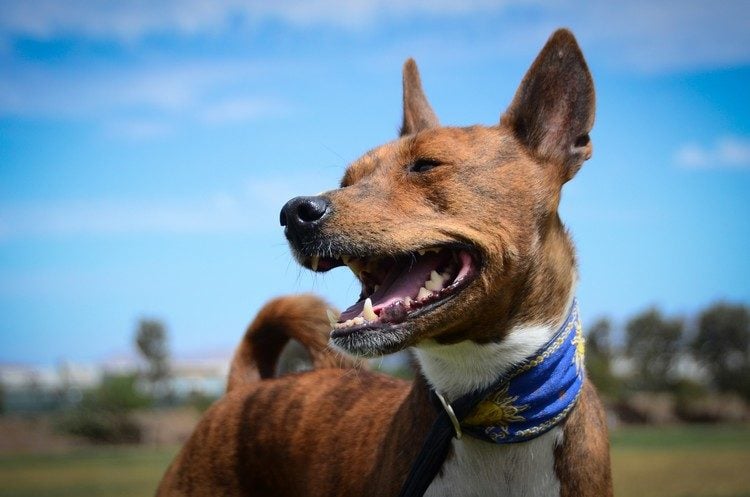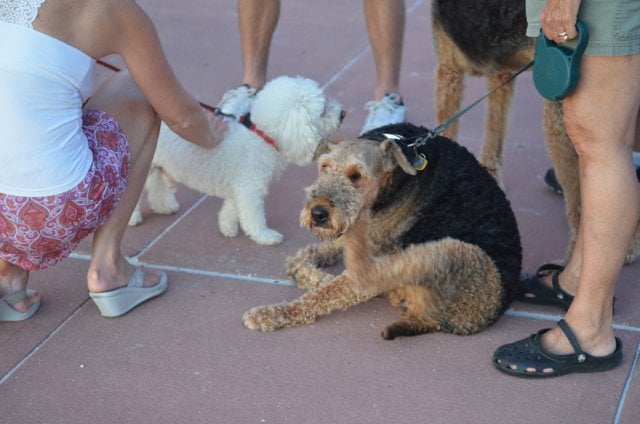Why The Basenji Bark is So Unusual

The Basenji dog was bred to be a hunter. They heir from Central Africa and were used to help flush game out for their owner. They started making their way over to England and the US in the mid-1900’s and have since, transitioned into just being family pets. These are a very unique breed of dog. They are not only known for their high-activity level, but they are very intelligent dogs. Despite their high levels of intelligence, they are also very stubborn. They can disobey and choose not to listen at any time, and it can appear that they don’t know what you are commanding of them, when in fact they do, they just do not want to do it right then.
These are also very demanding dogs, and they will command your attention at any time and expect you give it to them. Those who need a low maintenance dog may not want to try adopting or purchasing a Basenji because of this. But more than their high level of intelligence and high demands, what really makes this breed stand out, is the fact that these dogs don’t bark. Really. They don’t bark, and are actually called “barkless” dogs.” While they do make noises, they are not consistent with the typical barks of other breeds.
When a Basenji opens his mouth to let out a sound, what you will typically hear is an array of noises. You may hear a yodel, which sounds sort of like a howl, or “baroo.” That is how the sound is often described and many people wonder why this breed does not, or cannot bark. Keep in mind, however, it can also make other noises, such as whining and growling. Well, first of all, it has been said that it is pretty certain that this breed was chosen by hunters of Central Africa due to the fact that the dog does not bark. Because it doesn’t bark, they believed that it made hunting easier since the dogs couldn’t startle game, hence increasing the chance of a much more successful hunting excursion.
So, why don’t they bark, or why can’t they bark. Lots of people would like to know and it is an interesting reason, yet simple reason. It all has to do with the anatomy of the breeds’ voice boxes. In a Basenji, the voice box is narrower as well as more uniform in diameter than most all other dog breeds. It is described as this; that the Basenji has all the same parts of the vocal box, however, they are a bit different in their make-up. The laryngeal ventricle in a Basnji, which happens to be situated between the vocal and vestibular folds, is more shallow than other dogs’ same structure. It is the shallowness of this structure, the laryngeal ventricle, that doesn’t allow for the same type of movement of the vocal cords that other dog breeds have. This prevents a Basenji from being able to get a good, hearty bark out because the vocal cords cannot vibrate normally.
Despite not being able to truly bark, this is a sweet and good natured breed off dog who has a lot to offer the right person or family. Some people and owners even enjoy the difference in noises that the breed makes and like the fact that they has a very unique quality and characteristic about them. You might too.





